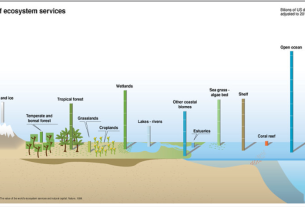Field reflections written by Charlotte, Emily, Tara, Diesha and Anouk who are studying on the University of Surrey’s BSc in Environment and Sustainability degree programme.
What have you been working on?
In April 2025 we went to Gwent in South Wales for a regeneration residential. Our aim was to study how different regions can regenerate in different dimensions. We conducted horizon scanning, water sampling and semi-structured interviews. This blog focuses on our interviews with the Cwmtyleri community and how their Pentref Tyleri, eco-tourism project has enabled the community to regenerate to a higher economic, social and environmental level.

Coal mining has been the primary industry throughout recorded history in Wales. Mining has become a part of the identity and pride of most Welshmen. The industry came under a great deal of scrutiny in the 1980s, causing a major collapse. One reason for this included the changing UK energy mix, moving away from coal power. The Cwmtyleri mine was a pit that employed thousands from the surrounding areas, but due to diminishing reserves, it was closed in 1982.
To gain insight into the the Pentref Tyleri project we conducted semi-structured interviews with five project workers. This allowed us to explore new topics and dive deeper into Cwmtyleri’s history, present and future.
Why is this project important?
The closure of the mines across South Wales, including Cwmtillery, resulted in hundreds of job losses. As unemployment continued to rise the area’s economic productivity worsened, raising the price of social infrastructure. To improve the social, economic and environmental conditions of the area, the Pentref Tyleri eco-tourism project aimed to rebuild the village services.

The project uses a bottom-up approach to provide jobs, activities and management in aim for a self-sustaining community. Collectively the project:
- Uses the community space, such as Caffi tyleri, to hold community activities. Activities range from language workshops and free soup Fridays to walking groups.
- Created a600m2 of wetland area, that was enabled by Natural Resource Wales’ ‘Resilient Communities Grant Programme’. This not only provided a natural habitat to increase biodiversity but also increased the ground capacity to hold water, reducing the chances of flood in the community during heavy rain.
- The creation of a community garden, with shared compost to encourage locals to grow their own food.
From their activities, these provide a host of benefits, both obvious and discreet:
- At the three-year mark this project brought in £500,000 into the local economy and generated 30,000 hours of localised employment.
- The project gives people a sense of value. It allows locals to feel like they are making an impact and playing a direct role in the community.
- The successes brought by the Pentref Tyleri has allowed big organisations like the government and councils to realise that community action can lift pressure off their services and reduce their expenses. All while reducing the communities’ inequalities.
- Additionally, successes from the Pentref Tyleri projects have been published in the news, becoming an inspiration for more grassroot action in other communities.

What are the future recommendations for the Tyleri project?
The establishment of Caffi Tyleri marked a significant shift in the local area, with social, economic, and environmental benefits. This project highlights how local efforts can help regenerate disadvantaged communities, particularly those affected by industrial decline.
- Local Economy: Tyleri is an important contributor to the local economy. The café’s income, which comes from food, drinks and homemade products like honey and soaps, helps contribute to local jobs. These products, which are linked to the region’s identity, contribute to its growing green economy and attract eco-tourism, encouraging local spending. Furthermore, these products have the potential to be marketed both nationally and worldwide, thereby increasing the community’s long-term income.
- Social aspects: Tyleri contributes significantly to the community’s social life. It creates a pleasant environment in which everyone can come together, strengthening relationships. For young people, the café provides workshops in Welsh language study, baking, and other skills. It provides opportunities to increase knowledge and boost career options.
- Wellbeing and mental health: Tyleri also promotes mental and physical wellness by providing accessible green spaces, encouraging outdoor activities. Socialising in such settings has been found to promote general well-being, thus locations like the café are critical for encouraging mental health and strengthening relationships.
- Environmental regeneration: What was formerly an empty old mining area and wetland has been converted into farmland for growing wheat and other local produce. This transformation not only produces food and materials for local businesses but also contributes to the restoration of natural environments. These acts promote biodiversity and contribute to carbon sequestration, which helps mitigating the consequences of climate change. As well as supporting the circular economy in South Wales by boosting local farming and minimising the demand for long-distance transport. This demonstrates that safeguarding the environment is possible with economic and social growth.
However, funding remains one of the biggest challenges for any community-led project. While government grants are available, the short-termism is especially important when considering expansions. For such projects to succeed, consistent and reliable support, whether from public or private sources is essential.
The story behind Caffi Tyleri is truly inspiring, their dedication and perseverance is reflected from the success in their work. One key takeaway is that none of this would have been possible without communal interest.
For more information
Visit the website for more information about the Pentref Tyleri project.


